Allergies: What You Need to Know
Allergies can be quite obnoxious to deal with at times, and on very rare and unfortunate occasions, can prove fatal. More people today deal with them than you might think. As many as 50 million Americans experience some type of allergic reaction every year. Whether it’s a food or seasonal allergy, there are ways that you can better manage them. Here’s more about allergies and what you need to know about them. In case you missed my post on 35 OTC Medications You Should Store
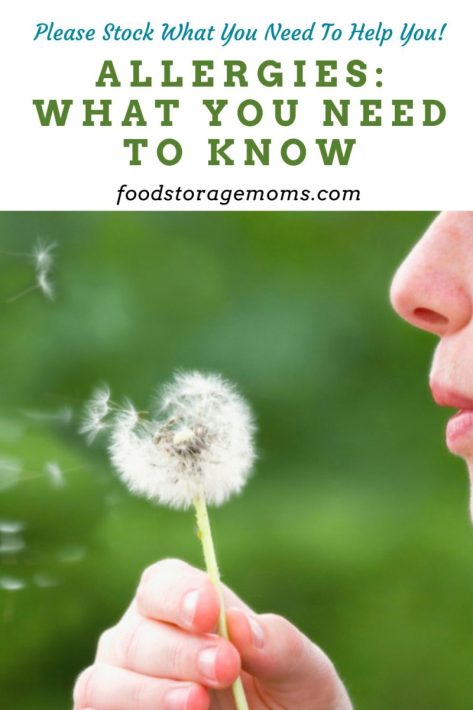
I’m updating this post today because I saw something on TV where a doctor mentioned the difference between taking allergy tablets and nasal allergy sprays. CBS New-Dr. John LaPook. Yes, there are commercials, please be patient and then you will see Gayle King talk with Dr. John LaPook. He said that the nasal spray goes directly into your nasal passages. He did not recommend any particular nasal spray, let me be clear about that.
I’m not a doctor, or anyone in the medical field. He mentions when the “tablets” go down your throat when you swallow them, they go through your intestines, then your liver, way before the stuff helps your nasal passages.
It’s interesting, I have always had sinus infections until this one doctor prescribed a nasal spray for me. It may or may not work for you. I have since learned that they sell a lower dosage over the counter these days. I hesitate to share, but I’m going to anyway. The other thing I do is drink a lot of water.
This one works for me, Azelastine HCI 0.1%, it has 137 mcg per spray. I use it twice daily. I’m very private, but I feel the need to tell you what has helped me. Mine is a prescription and I ask for a year’s supply of refills.
Allergies: What You Need to Know
An allergic reaction takes place when our immune system becomes hypersensitive to a particular substance, including food, medications, bee venom, pollen, and other sources. These are known as allergens, which don’t tend to bother most people but only to specific people whose immune systems react.
It’s not too common to be affected by a particular substance the first time that you’re exposed to it. Over time, our immune systems will begin to recognize the allergen and will develop sensitivity towards it. There are also allergies that are seasonal, especially in the spring when the pollen count is at its highest.
You may want to look at buying some local raw unfiltered honey to help alleviate some of your allergy symptoms. A tablespoon a day will “expose” you to your local allergens in small enough dosages so that your body may develop an effective response.
Difference Between Allergies and Intolerance
Some people often get confused and incorrectly diagnose their body’s response to a particular substance, believing it to be an allergy. Food intolerance does not have anything to do with IgE antibodies as allergies do. Food allergies happen when our bodies target a particular protein as harmful, while a food intolerance can be triggered by carbohydrates, chemicals, or a lack of enzymes. Here’s a quick look at a few that often get confused as a food allergy.
- IBS (irritable bowel syndrome)
- Celiac disease
- Lactose Intolerant
- Food Additive Sensitivity
Common Allergens
There’s a long and never-ending list of allergens that affect certain people. Here’s a brief look at a few of the most common ones that affect some people.
Food Allergies
- Milk
- Peanuts and tree nuts
- Eggs
- Soy
- Wheat
- Shellfish
Other Types of Allergies
- Penicillin and other medications
- Household cleaning chemicals
- Latex
- Metal allergies (metals such as nickel, cobalt, zinc, and chromium)
- Mildew and mold
- Pet fur, dander, and saliva
- Insect bites or stings
- Cockroaches, moths, and caddisflies
What are the Symptoms?
Depending upon the allergen, these are some of the symptoms that you may come across that are clear indicators that you may be allergic to that particular substance. Here’s a closer look at the more common ones.
Food Allergies
- Tingling or itching in the mouth
- Swollen tongue
- Noticeable swelling in the face, mouth, or throat
- Stomach cramps
- Vomiting or diarrhea
- Difficulty breathing
- Rectal bleeding (more common in children)
Pollen and Dust Allergies
- Watery, Itchy, and swollen eyes
- Coughing
- Itchy or runny nose
- Congestion in your nose
Medication Allergies
- Swelling in the face, tongue, or lips
- A rash is likely to form along with itchiness
- Wheezing and difficulty breathing
Insect Bite and Sting Allergies
- Difficulty breathing and wheezing
- Coughing
- Dizziness
- Substantial swelling in the region where the sting occurred
- Itchy skin
- Hives begin to spread across the body
- Restlessness
- A quick drop in blood pressure
Anaphylaxis Symptoms
The most severe form of an allergic reaction is called anaphylaxis. It’s certainly a medical emergency that could prove life-threatening if left untreated. It can develop within minutes, or a few hours later after being exposed to a particular allergen. Being aware of these symptoms can be critical so that the patient can get the treatment he or she needs in time.
- Difficulty breathing
- Hive, itchiness, or flushing may take place
- Swelling
- Wheezing
- Faint or dizzy feeling
- A rapid change in heart rate
- May slip out of consciousness
Who’s at a Greater Risk for Allergies?
Allergies can be passed down through our genes from our parents. If a parent has a certain allergy, this can substantially increase the risk for their son or daughter to have that same allergy. People who have asthma are also at a greater risk of developing a food allergy. Children who are born by cesarean section, introduced to certain foods late, or given antibiotics during their first year are also more likely to develop some sort of allergy.
Eliminating Food from Your Diet
It’s one thing if you have a peanut allergy and can simply remove peanuts from your diet, but if you’re allergic to a food that’s an important part of your diet (like milk and protein), you’ll want to speak with a dietitian. You’ll need to find another food source or supplement to get the important nutrients that your body needs.
Not only are some people allergic when eating particular foods, but even touching or breathing it can cause a reaction to take place. That’s why it’s so important that people with food allergies pay close attention to food products and even adhesives that may have traces of the allergen.
Treating Allergies
Unfortunately, there is no cure for allergies, but you can manage the symptoms. For starters, it’s important to avoid the allergen, if possible. If it’s your child who has a food allergy, it’s also important to instruct the care provider for them as well.
Nasal spray and eye drops can also help calm the symptoms of some allergies. Most of the remedies can be found at your local drugstore, even without a prescription. For more serious cases that are unrelated to food allergies, allergy shots (immunotherapy) can also be helpful.
Medication for Mild to Severe Symptoms
Epinephrine (adrenaline) is for people who may experience a severe food allergy. It works to keep the blood pressure up while keeping your airways open. People who have food allergies should always keep an auto-injector of epinephrine with them.
Antihistamines come in a number of different forms, including a liquid, gel, or tablet form. (Benadryl) An antihistamine is a chemical that blocks the symptoms of several types of allergies. It works best for patients who have mild to moderate allergies. Children’s Benadryl
Final Word
If you’re someone that has to deal with allergies on a regular basis, you know that the symptoms can be obnoxious, and very unpleasant, but they can be manageable. Are you someone who has to deal with food, seasonal, or other types of allergies?
What have you found that helps you cope with its symptoms? Is there anything else you’d add to this guide about allergies: everything you need to know? Please keep prepping, we must. May God bless this world, Linda
Copyright Images: Allergy Foods AdobeStock_300471488 by New Africa, Allergy Season Deposit photos_2734528_s-2019






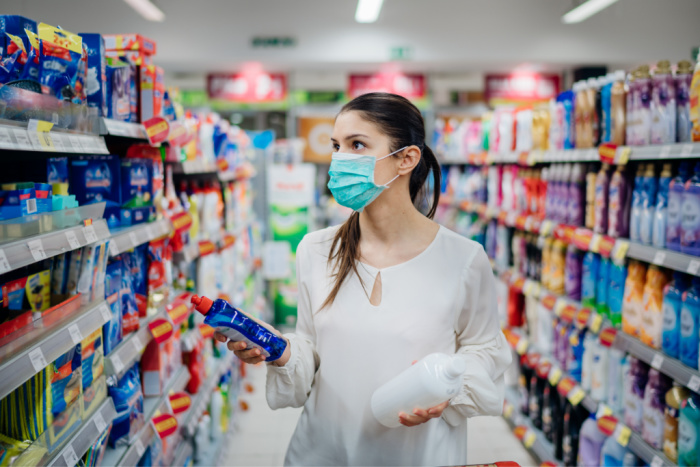


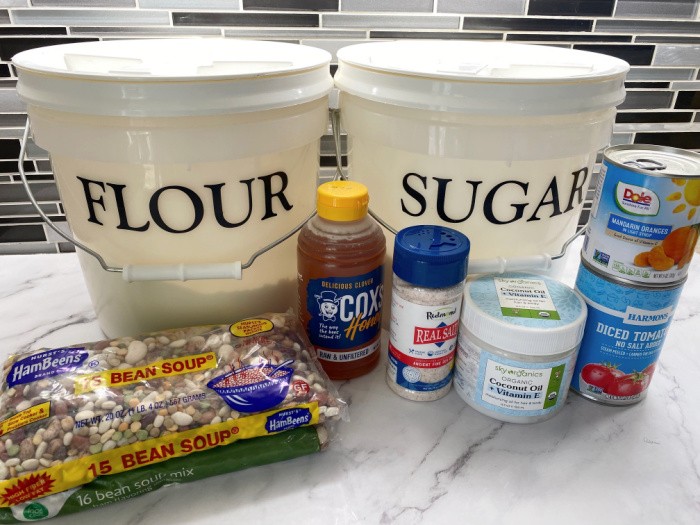
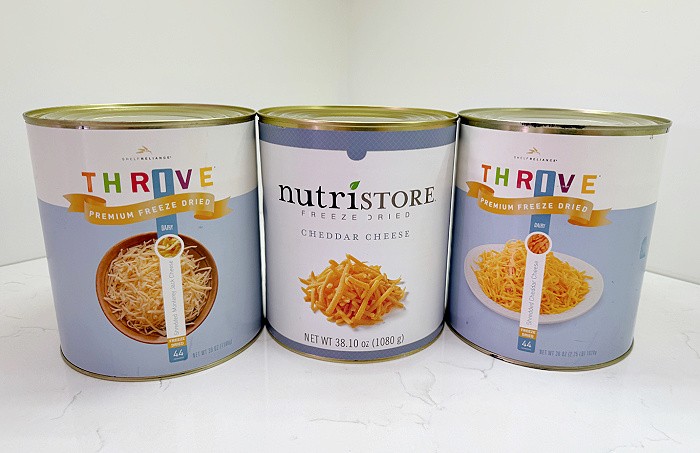




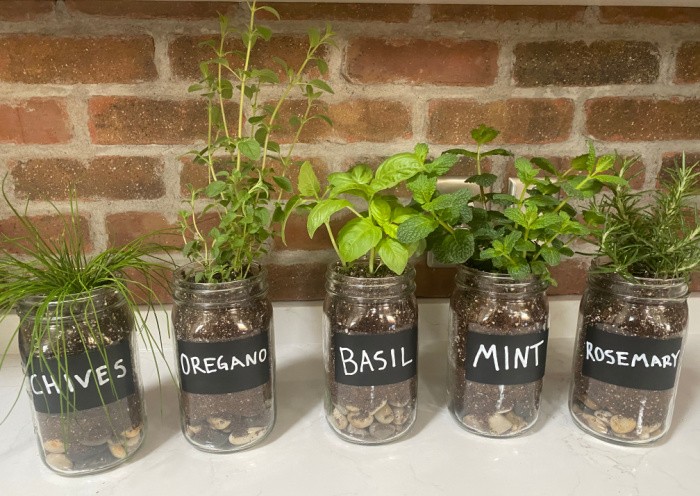






Linda,
Raw unfiltered honey from a local beekeeper can help people to develop antigens against local allergens such as dust and pollen. The theory is that the bees take the pollen and accompanying dust from the flowers to the hive where they get incorporated into the honey. A tablespoon a day will “expose” you to your local allergens in small enough dosages so that your body can develop an effective response.
I’ve tried this. Arizona is a horribly dusty place and you can’t believe the number of pollen producing plant around our locale. The honey cure isn’t perfect but it does help me alleviate symptoms.
Good luck with the property search.
Hi Ray, I forgot about the unfiltered local raw honey, I need to add that to the post, thanks for the reminder. I’m donating stuff so I’m ready to find a property. I’ll keep you posted, Linda
I hope you can find the acreage you want with live water and a good potable well, with a 70/30 mix of pasture and trees, with a fully developed orchard and with all the other good things you and your hubby dream of.
Hi Ray, you are so cute, I will keep you posted. That would be perfect for me, but Mark golfs twice a week. I know he loves chasing those little white balls over the place. I’m not a golfer, can you tell? LOL! Happy Weekend, Linda
I have a shellfish allergy that is deadly! Have to carry an Epipen with me at all times when I go out to eat. My allergist told me to stay away from all fish even if it is not related to shellfish and to stay away from all foods that come from the sea not just fish/shellfish. He indicated that there is no easy way to test for certain allergens because of the possibility of anaphylaxis. I have to be extra cautious when eating out if the restaurant serves seafood of any kind. Reading labels is another thing that I had to learn how do do!! There are derivatives of seafood in so many things like vitamins, food products, etc. The same goes for gluten – it seems to be in everything (I don’t have a gluten allergy/intolerance).
Hi Leanne, wow, that’s scary!! I also heard those Epipen’s have skyrocketed in price. I guess that’s another good reason to eat at home. We love to do that anyway. But, wow, any restaurant could have fish!! Yikes! Linda
I am allergic to my husband’s cat. I double vacuum the carpet often but as soon as I finish, there she goes again. Also I want to mention here about cat urine. It is very strong and whenever I go to clean the litter box the smell makes my eyes water so bad I can hardly see. My husband lets me use his allergy tablets which comes from CVS Pharmacy. It finally began working for me but by the end of the day it quits working. The jets keep dumping that fuel on us and you hardly see any bees here. Another topic for you gal.
Hi Judy, allergies are not fun at all. It’s interesting you mentioned about the jets flying over and dumping fuel. When I go outside and work in my garden, I see the planes overhead and think to myself, what is spraying over my yard right now that I may not see. That’s a great topic idea, I’m on it. Linda
Good, people need to know the truth. Nearly everyday I see them dumping this stuff, the dump it very heavy at times and I can smell it, have to come inside the house. I pray every time I see them and ask God that it won’t harm my family’s health and our food garden. Your rock, go gal.
Hi Judy, you made my day!! Thank you so much! Linda
Great post! Very well written with great information. My 11 year old son is anaphylactic to eggs…and up until 2 years ago, was also anaphylactic to peanuts. My son’s reactions include vomiting, nasal congestion, swelling of the bridge of his nose, loss of consciousness (this is from a drastic drop in blood pressure), and low oxygen levels. When he had his first peanut reaction, his pulse ox was in the low 60s when we arrived in the ER. He lost all color in his skin and lips, although his breathing appeared to be normal. I like to share my son’s reaction symptoms because they tend to not be the more typical ones that someone would look for in a reaction, and I think it’s important for people to know how different reactions can look. Thank you for this post. The more information that gets out there about allergies the better.
Hi Melinda, oh my gosh, thank you for sharing your thoughts. This would be so scary, I can’t imagine this happening to your son. WOW! I’m glad he is okay now. “although his breathing appeared to be normal”. I hope a LOT of people read this comment, you will help many families. Thank you, Linda
Hi Linda, hope all is well with you and yours. I have another herb to add to the things I am allergic to now. ROSEMARY!!! I had to spend the night in the emergency room after an anaphylaxis reaction. It was the only thing NEW that I had eaten. It was cooked into some chicken that came from our Church’s soup kitchen. I alerted them to the reaction I had, and they won’t cook with Rosemary anymore. Scary stuff. People, when someone says they feel strange after eating something, ask them if they are allergic to something they may have eaten or to some ingredient in the food and then call 911 and request an ambulance; let them know someone is having an allergic reaction. Since I have anaphylaxis reaction before, I knew what to do. I did not have to use my epi pens since the hospital is a block and a half from my home. Take care everyone and have a good and safe weekend.
Hi Mildred, oh my gosh, thank you for sharing your story, I’m so glad you’re okay!! This is a great tip for all of us! Linda